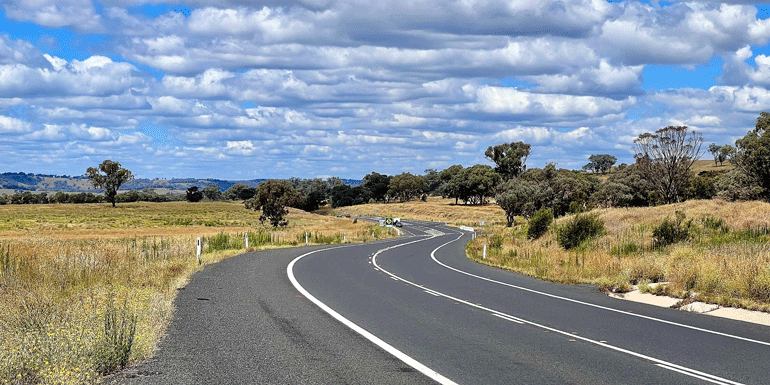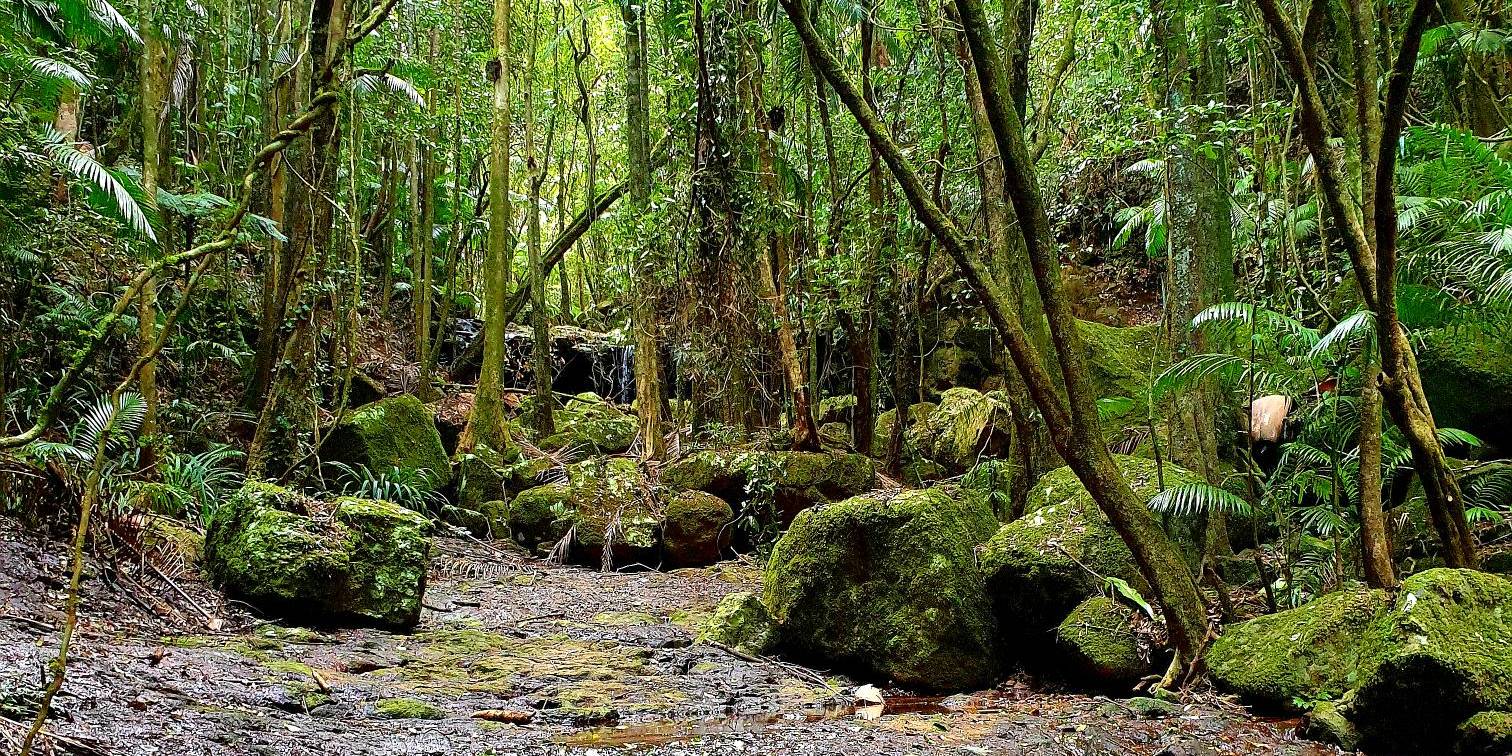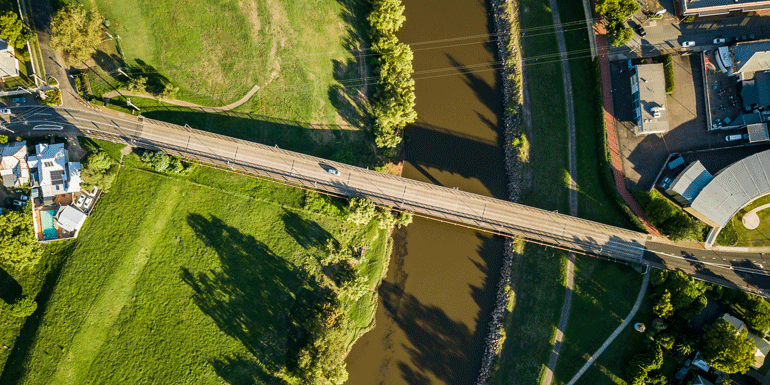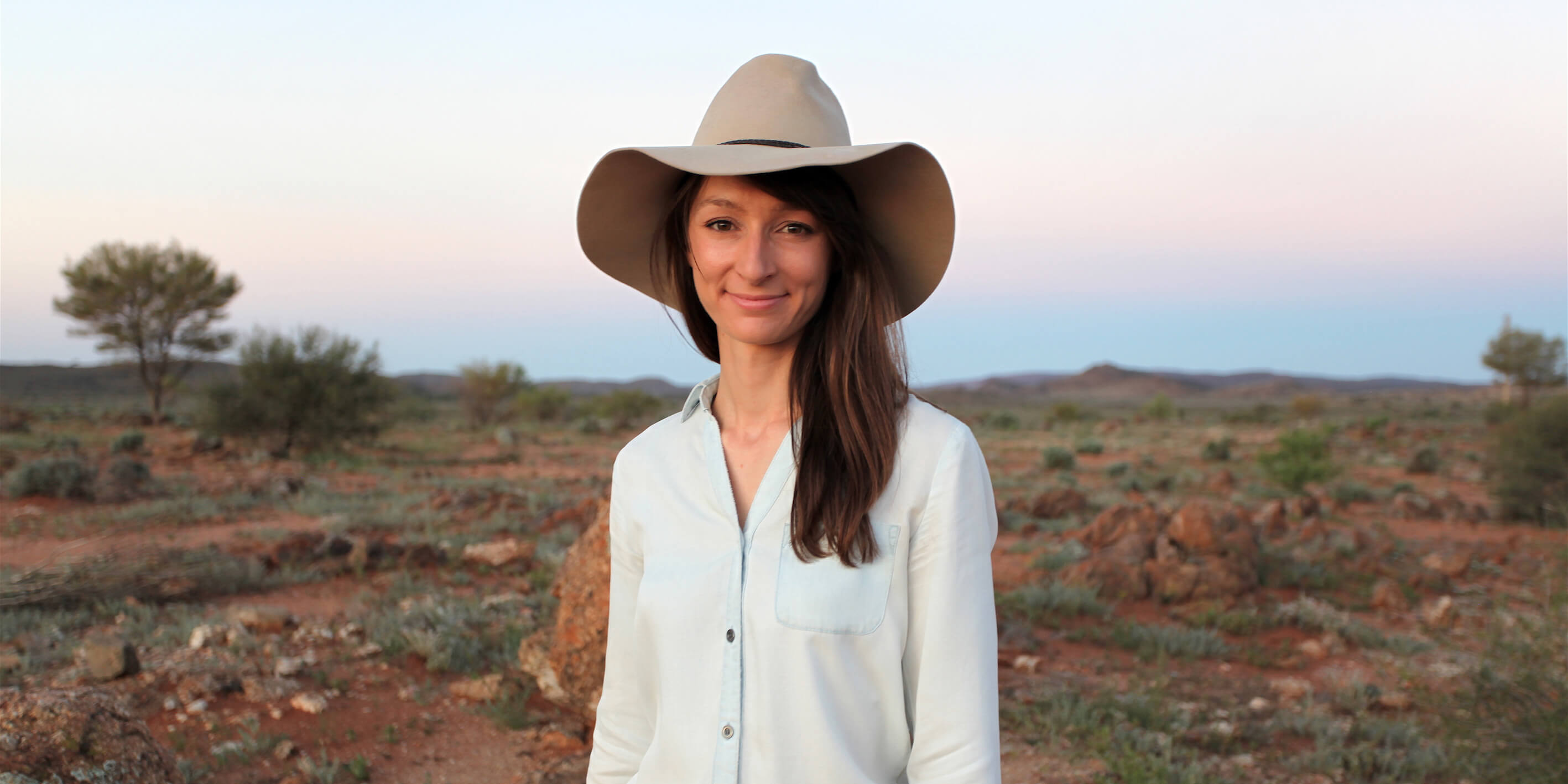About this case study
Drought, food security
Residents, businesses, communities, land and water managers
Advocacy, climate smart agriculture
Find out how life in on a farm in Broken Hill led to an understanding of how climate change is related to the food we eat
By choosing to buy food that is local, seasonal and fresh, we can reduce food waste and emissions, and develop respect for food and the system that produced it.
-Anika Molesworth
Anika Molesworth is a farmer, scientist and storyteller who says every Australian can help tackle climate change, starting with the meal on their plate.
Anika was 12 years old when her Melbourne family bought a farm near Broken Hill. In this place of untamed beauty, of ruby-red sands and sapphire skies, Anika learnt the rhythms of the seasons, the secrets of the soils, and the irreplaceable value of the natural world. Farmers live so close to the natural world that they are the first to feel the full impacts of climate change.
The decade-long Millennium Drought, which ravaged parts of Australia from 2000 to 2010, opened Anika’s eyes to the challenges of climate change. It also sparked her passion for resilient rural communities.
“My home became dry and dust storms turned the skies red. I watched the environment suffer and people leave our community,” Anika explains.
Anika began to “join the dots” between the land, the climate and the food on her plate.
“I learnt why extreme weather events like droughts, bushfires and floods were becoming more frequent and intense – and I was frightened by the climate change projections. What was in store for me and my community in 10, 20 or 30 years? And how could we feed a rapidly growing global population in a climate challenged world?”
Today, with a PhD in agricultural science and ecosystems, Anika leads Climate Wise Agriculture, a knowledge sharing platform for food systems in a climate changed world. She speaks and writes on ways we can eat and live that are good for both people and the planet.
Anika’s career has taken her to every continent – including Antarctica – and she’s been recognised with numerous awards, including the Green Globe Awards Young Sustainability Champion in 2018. Australians waste about 300 kilograms of food per person each year. That’s the equivalent to throwing away one in five bags of groceries. More than five per cent of Australia’s greenhouse gas emissions are generated by wasted food, and 25 per cent of the water used in agriculture is ultimately wasted.
“We live in an interconnected world and addressing climate change requires us to work collectively.”
For Anika, this collective action takes many forms. She is working with young people in agriculture in a range of Australian and global forums to build skills and inspire change. “These young people are creative, critical thinkers. They are challenging the status quo. Every day they are looking at better ways to produce food,” she says.
Anika is also writing a book about how climate change is impacting the global food system.
“I’m bringing together the raw and honest stories of what climate change means for our food production. But I’ve also gained incredible inspiration from farmers, nutritionists, climate scientists, chefs, and social entrepreneurs,” she says.
Farmers are the people looking climate change in the eye and refusing to give up. Instead, they are saying they will be part of the solution.
- Anika Molesworth
With a deep love of the fragile land and the people who call it home, Anika is also determined to find solutions that feed our global population, tackle climate change and ensure farmers enjoy a productive future.
Related Information
Green Globe Awards Young Sustainability Champion - NSW Government
Tackling Australia's food waste - Australian Government Department of Agriculture, Water and the Environment
Case studies

NSW councils are building climate risk into their business-as-usual planning and policies for the first time, thanks to products developed using NARCliM’s locally relevant climate modelled data.

The NSW Government has created the first holistic adaptation plan to protect a World Heritage rainforest from climate change impacts – and now ground-breaking genetic science is giving some rare and threatened species a helping hand to adapt and evolve.

Climate change creates a significant risk to infrastructure, people, and the economy. The impacts from climate change, including damaging weather events, has already cost the state an estimated $3.6 billion per year.
